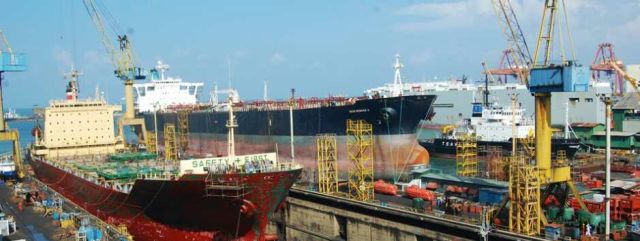Introduction of the subject:
MARINE INSURANCE:

— Insurance covering the consignment you are exporting by using a shipping agency is a Mandatary term you will find mentioned in Order-Sheet. And, its not expensive at all.
— by Shabab Khan
Export Entrepreneur
Importance of Marine insurance in commerce:
Marine insurance plays a very important role in the field of overseas commerce and internal trade of a country. It is closely linked with Banking and Shipping. Banks generally finance the goods which are transported by ships or by other means of transport in the case of internal trade and Marine Insurance protects such goods a Marine Insurance can be divided broadly into two groups…
— Cargo Insurance
— Hull Insurance
As stated earlier, Marine Insurance is closely linked up with the trade of a country internal as well as international. A sale contract which is an essential feature in the trade involves a seller and a buyer, apart from the other parties like the carrier, the bank, and the shipping agent. Whether the insurance of the goods in transits is to be the responsibility of the seller or the buyer depends on the type of the sale contract in any transaction.
There are different types of sales contracts the most important of which, as affecting the Marine Insurance are:
-F.O.B. ( Free on Board) In this case, the seller is responsible for loss of or damage to the goods until they are placed on board the steamer for on carriage. Thereafter the buyer becomes responsible and he has, therefore, the option to insure where he likes.
-C.I.F. (Cost, Insurance and Freight) In this case the seller assumes responsibility for the insurance and the insurance charges are indicated in the invoice along with the other charges.
-C & F (Cost and Freight) In this case, normally the buyers responsibility attaches from the time the goods are placed on board the vessel and he has therefore to take care of the insurance.
-F.O.R. (Free on Rail) This is same as F.O.B. but it concerns mainly the internal trade transactions.
Marine Cargo Policy: This policy covers goods, freight and other interests against loss or damage to goods whilst being transported by rail, road, sea and/or air.
Highlights
This policy covers goods, freight and other interests against loss or damage to goods whilst being transported by rail, road, sea and/or air. Different policies are available depending on the type of coverage required ranging from an ALL RISK cover to a restricted FIRE RISK ONLY cover.
• This policy is freely assignable and is basically an agreed value policy.
Scope Transportation of goods can be broadly classified into three categories:
1. Inland Transportation:
2. Import
3. Export
The types of policies issued to cover these transits are:
For Inland Transit:
a. Specific Policy – For covering specific single transit Open Policy.
b. For covering transit of regular consignments over the same route: The policy can be taken for an amount equivalent to three months despatches and premium paid in advance.
As each consignment is despatched, a declaration giving details of the despatch including GR/RR No. is to be sent to the insurer and the sum insured gets reduced by the amount of the declared despatch. The sum insured can be increased any number of times during the policy period of one year; but care should be taken to ensure that ad insured is available to cover the consignment to be despatched.
c. Special Declaration Policy –
equate sum For covering inland transit of goods wherein the value of goods transported during one year exceeds Rs.20 mns. Although the premium for the estimated annual turnover [i.e. the estimated value of goods likely to be transported during the year] has to be paid in advance, attractive discounts in premium are available.
d. Multi-transit Policy: For covering multiple transits of the same consignment including intermediate storage and processing. For e.g. covering goods from raw material supplier’s warehouse to final distributor’s godown of final product.
For Import/Export:
a. Specific Policy – For covering specific import/export consignment.
b. Open cover – This policy which is issued for a policy period of one year indicates the rates, terms and conditions agreed upon by the insured and insurer to cover the consignments to be imported or exported.
A declaration is to be made to the insurance company as and when a consignment is to be sent along with the premium at the agreed. The insurance company will then issue a certificate covering the declared consignment.
c. Custom duty cover rate: This policy covers loss of custom duty paid in case goods arrive in damaged condition. This policy can be taken even if the overseas transit has been covered by an insurance company abroad, but it has to be taken before the goods arrive in India. Add on covers Inland transit policies can be extended to cover the following perils on pay ment of additional premium :
i. SRCC – Strike, riot and civil commotion (including terrorist act)
ii. FOB – Where the inland transit is required to be extended to cover the goods till they are loaded on board the vessel, this extension can be taken. Export /Import policies can be extended to cover War and /or SRCC perils on payment of an additional premium. Who can take the policy The contract of sale would determine who buys the policy.
The most common contracts are:
— FOB (Free on Board)
— C & F (Cost & Freight)
— CIF (Cost, Insurance & Freight)
In FOB AND C&F contracts, the buyer is responsible for insurance. Whereas in CIF contracts the seller is responsible for insurance from his own premises to that of the purchaser.
How to select the sum insured: The sum insured or value of the policy would depend upon the type of contract.
Usually, in addition to the contract value 10 to 15% is added to take care of incidental cost.
How to claim:
The following steps should be taken by the insured in event of a loss goods insured :
i. Take immediate steps to minimise loss or damage to inform nearest office of the insurance company or
ii. Claim settling agent mentioned in the policy.
In case of damage to goods whilst on ship or port, on arrange for joint ship survey or port survey. Lodge monetary claim with carrier within stipulated time period.
Submit duly assigned insurance policy/certificate along with the original invoice and other documents required to substantiate the claim such as:
-Bill of Lading (B/L)
-AWB/GR
-Packing List
-Copies of correspondence exchanged with carriers.
-Copy of notice served on carriers along with acknowledgment/receipt.
-Shortage/Damage Certificate issued by carriers.
Survey fees: These fees to be paid to the surveyor appointed by the insurance company. will be reimbursed along with the claim if the claim is otherwise admissible. Survey report submitted by Surveyor.
Hope these basic structure of Marine Insurance will help you in buying appropriate policy for your consignment, for further you are welcomed to contact at:
khansworld@rediffmail.com
(Author is an Export Entrepreneur, Journalist, Engineer and Social Activist for Cruelty Against Animals…

